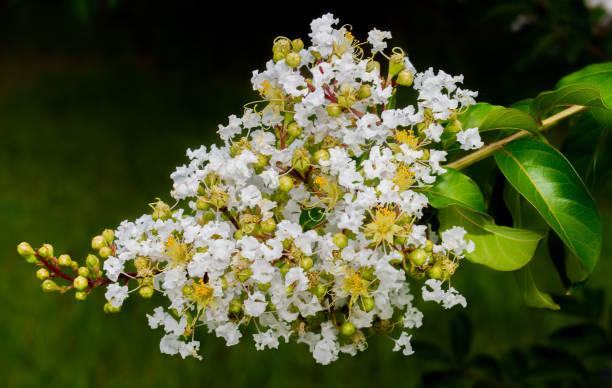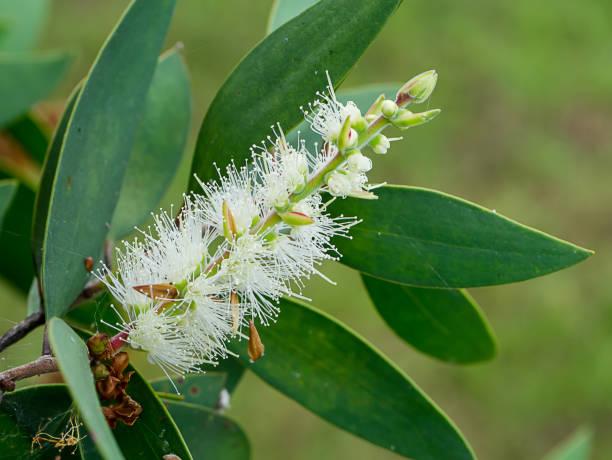La toux grasse est un mécanisme de défense de l’organisme qui a pour but d’expulser les mucosités. Elle permet d’éliminer les sécrétions et donc, les bactéries et virus contenues dans le mucus.
Elle aide notre organisme à évacuer les mucosités, présentes en trop grandes quantités lorsqu’on souffre d’une toux ou encore d’une bronchite. Ce processus désencombre les poumons et les bronches, et contrairement à la toux sèche, il s’agit d’une toux productive.
Certains signes permettent de faire la différence entre la toux grasse et la toux sèche : si la toux s’accompagne d’expectorations, elle est dite grasse, mais s’il n’y a pas de sécrétions, il s’agit alors d’une toux sèche, qui s’avère irritante et fatigante. On observe alors une alternance de la toux sèche et de la toux grasse en fonction de l’évolution de la maladie.
Et la toux sèche se transforme souvent en toux grasse.

How does a wet cough manifest itself and what can be done to relieve it?
La toux grasse se manifeste par un encombrement des voies respiratoires. Les médicaments contre la toux n’ont pas pour but de la stopper, mais de la faciliter.
Comme un mécanisme de défense, l’organisme évacue les agents pathogènes via l’hypersécrétion de mucus, afin de protéger les bronches et la trachée. Plusieurs conseils sont à suivre pour apaiser la toux grasse, à commencer par :
- Use saline twice a day. In case of cold, spray 3 times per nostril, morning and evening.
- You should also remember to hydrate more often, air out your home, wash your hands after coughing, and humidify the air around you.
- You can also raise your head if you cough at night, and avoid exposure to tobacco.
Si vous souffrez de toux grasse et que vous avez du mal à évacuer les sécrétions, vous pouvez également vous tourner vers les huiles essentielles, pour un remède anti toux grasse naturel et efficace.
Il conviendra donc d’opter pour celles qui favorisent l’expulsion du mucus et des germes, et ainsi désencombrer les voies respiratoires.
Choisissez des huiles essentielles aux propriétés antitussives, expectorantes et antispasmodiques, pour fluidifier les sécrétions et apaiser le mal de gorge.
The most effective essential oils for wet coughs
There are many essential oils against wet cough, starting with 4 of them, validated and approved to free the respiratory tree and stop coughing fits: green myrtle / eucalyptus radiata/ inule odorant / niaouli.
L’huile essentielle de myrte verte
L’huile essentielle de myrte vert possède une action expectorante, favorise la sécrétion des bronches et protège les voies respiratoires grâce aux molécules d’alpha pinène, 1,8-cinéole et limonène qu’elle contient.

→ Précaution à prendre : déconseillée durant la grossesse et l’allaitement, pour les enfants de moins de 3 ans, et les personnes souffrant d’asthme (en diffusion ou inhalation) et d’épilepsie. Elle peut être irritante pour la peau et doit être évitée en cas de pathologies hormono-dépendantes. Dermocaustique à l’état pur, il conviendra de la diluer dans des huiles végétales pour une application cutanée. Elle peut s’avérer néphrotoxique en cas d’ingestion à haute dose et sur une longue période.
The oil of eucalyptus radiata
Its 1,8-cineole content promotes the stimulation of the glands responsible for mucus secretion and thus acts as a mucolytic and expectorant.
→ Precautionary note: not recommended for pregnant women (the first 3 months of pregnancy), breastfeeding women, babies under 3 months of age, and asthmatics (in diffusion or inhalation). Irritant, the essential oil of eucalyptus radiata must be diluted with vegetable oils in skin application.
The essential oil of sweet woodruff
Riche en terpènes, l’huile essentielle d’inule odorante possède des propriétés décongestionnantes, anti-bactériennes et anti-inflammatoires, et permet d’apaiser les spasmes de la toux.

→ Précaution à prendre : déconseillée aux femmes enceintes (les 3 premiers mois de grossesse) et allaitantes, ainsi qu’aux bébés de moins de 3 mois. Privilégier l’usage externe et demandez un avis médical pour l’ingestion. Peut provoquer des réactions allergiques. Attention au risque de « choc à l’inule », une crise d’élimination de la toux grasse impressionnante en cas de consommation en trop grande quantité.
Niaouli oil
Principalement constituée de 1,8-cinéole, alpha terpinéol et limonène, l’huile essentielle de niaouli possède de puissantes propriétés antivirales et expectorantes.

Has powerful antiviral and expectorant properties.
→ Caution: do not use during pregnancy, or in nursing women and children under 3 years of age. It can be irritating to the skin and should be avoided by people with mastosis or hormone-dependent cancers. It is not recommended in case of asthma and epilepsy.
In case of doubt with the use of essential oils, consult an aromatherapist.
Precautions to take
Other essential oils against oily cough: you can also opt for essential oils of Siberian fir, rosemary verbenone, ravintsara, turpentine, dill, eucalyptus globulus, cypress, tea tree, thujanol thyme, rosemary cineole and cardamom. They will save you in case of chronic cough or bronchitis.
Contra-indications of essential oils: most of them are not recommended for children, as well as for pregnant and breast-feeding women. They are generally not recommended for asthmatics, epileptics, or people suffering from a hormone-dependent disease. It is strongly recommended to test an essential oil in the hollow of the elbow 24 hours before use, to ensure that no allergic reaction occurs. If it does, discontinue use and seek medical advice. If you are taking a cortisone treatment, they should not be used simultaneously.
Treatment with essential oils
On air:
Les huiles essentielles contre la toux grasse peuvent être utilisées en diffusion. Vous profiterez pleinement de leurs bénéfices, tout en parfumant votre intérieur.
À savoir qu’il existe 4 grandes catégories de diffuseurs : par nébulisation, par brumisation, par chaleur douce ou encore, par ventilation. Tous ont leurs particularités, et certains seront plus adaptés que d’autres pour vous (couleur, forme, design…). À vous de trouver celui qui vous convient le mieux et qui s’intègre bien à votre style de déco’ !

Pour info : les diffuseurs d’huiles essentielles par ultra-nébulisation ont l’avantage de vous faire bénéficier de toutes les propriétés curatives des huiles essentielles : leur technologie innovante propose une diffusion pure des huiles essentielles (sans ajout d’eau, ni chaleur) directement depuis le flacon.
Des micro-particules d’H.E. sont diffusées dans l’atmosphère, et permettent de couvrir des espaces allant jusqu’à 60 m². En revanche, ils sont assez bruyants et leurs prix sont plutôt élevés.
En inhalation :
There is a wide range of essential oils that can be used for inhalation. You can easily find an inhaler with a nozzle in a pharmacy, or you can simply do it in a container of hot water, making sure to cover your head to fully enjoy the benefits of the oils.
On veillera à utiliser uniquement celles qui se prêtent à l’inhalation. En effet, certaines peuvent provoquer des irritations au niveau des voies respiratoires. Si vous préférez l’inhalation sèche, il est également possible de mettre quelques gouttes sur un galet, voire dans un mouchoir, à respirer plusieurs fois par jour.
Synergie à respirer plusieurs fois par jour :
• 1 goutte d’H.E. de myrte vert.
• 1 goutte d’H.E. d’inule odorante.
• 1 goutte d’H.E. d’eucalyptus radié.
Réalisez ce mélange et appliquer dans un mouchoir, que vous pourrez respirer 5 à 6 fois dans la journée.
Dermal:
Sur la peau : l’application d’huiles essentielles anti toux grasse peut se faire par voie cutanée : celles-ci pénètrent la peau en profondeur et sont donc de véritables alliées thérapeutiques.
Puisqu’il s’agit d’un composant très puissant, il convient de ne pas l’utiliser pure sur la peau, vous pourrez la diluer dans vegetable oil ou le beurre végétal de votre choix.
Diluée dans le bain : les huiles essentielles font merveille dans le bain ou sous la douche. En revanche, elles ne se dissolvent pas au contact de l’eau. C’est pourquoi il convient de les mélanger avec un peu de gel douche ou du gros sel avant utilisation.
Recette d’une huile de massage pour soulager la toux grasse :
• 15 gouttes d’H.E. de niaouli.
• 15 gouttes d’H.E. de myrte vert.
• 10 gouttes d’H.E. d’eucalyptus radié.
• 10 ml d’huile végétale de calophylle inophyle.
Préparez cette recette puis mélangez bien, avant d’appliquer sur le thorax, le haut du dos et les plantes des pieds. À réaliser 3 fois par jours (max.), pendant 7 jours (max.).
Par voie orale
Les huiles essentielles pour faciliter la toux grasse peuvent également être ingérées. Mais attention, toutes ne sont pas prévues pour un usage interne, il convient de bien consulter le chémotype de l’huile essentielle que vous souhaitez consommer.
Le chémotype vous renseigne sur les caractéristiques et les bienfaits de chaque essence. Vous pourrez ainsi consommer les huiles essentielles dans du miel, dans de l’huile d’olive, sur un sucre, sur un comprimé neutre, ou même en infusion. Attention avec les dosages lorsqu’il s’agit de prise interne.
Recette d’une infusion anti toux grasse :
• 1 goutte d’huile essentielle d’eucalyptus radié.
• 1 goutte dtea tree oil.
• 1 goutte d’huile essentielle de niaouli.
• 1 tasse d’infusion (au thym, idéalement).
• 1 cuillère à café de miel
Place the drops of essential oils in your spoonful of honey, then dip it into your infusion and stir well. Drink slowly, 1 cup a day for 5 days.
→ As a precautionary measure, this infusion is contraindicated in case of pregnancy or breastfeeding, as well as to young children and people with hormone-dependent pathology.
Découvrez ICI notre guide des huiles essentielles



